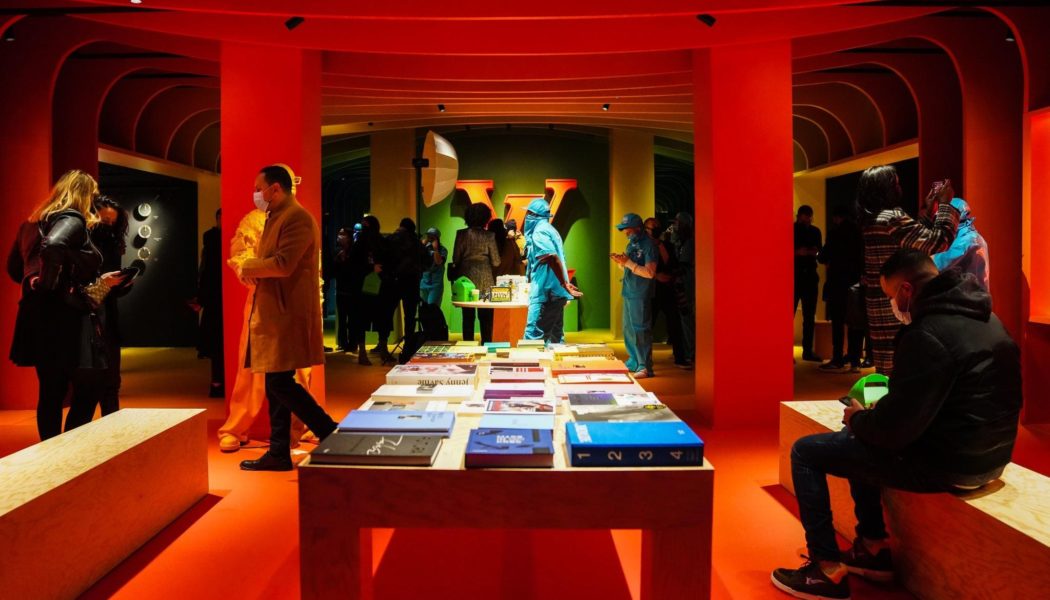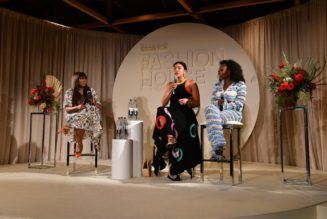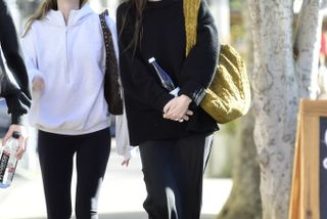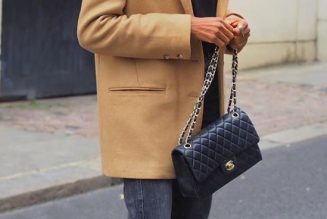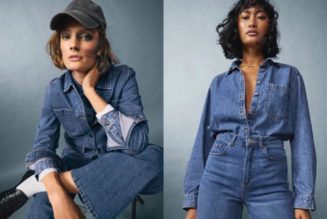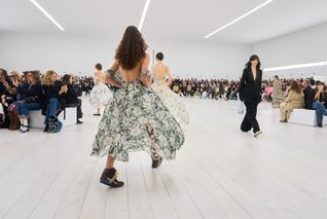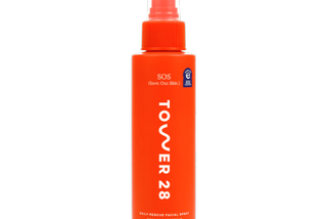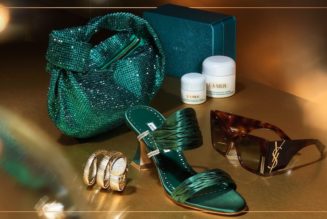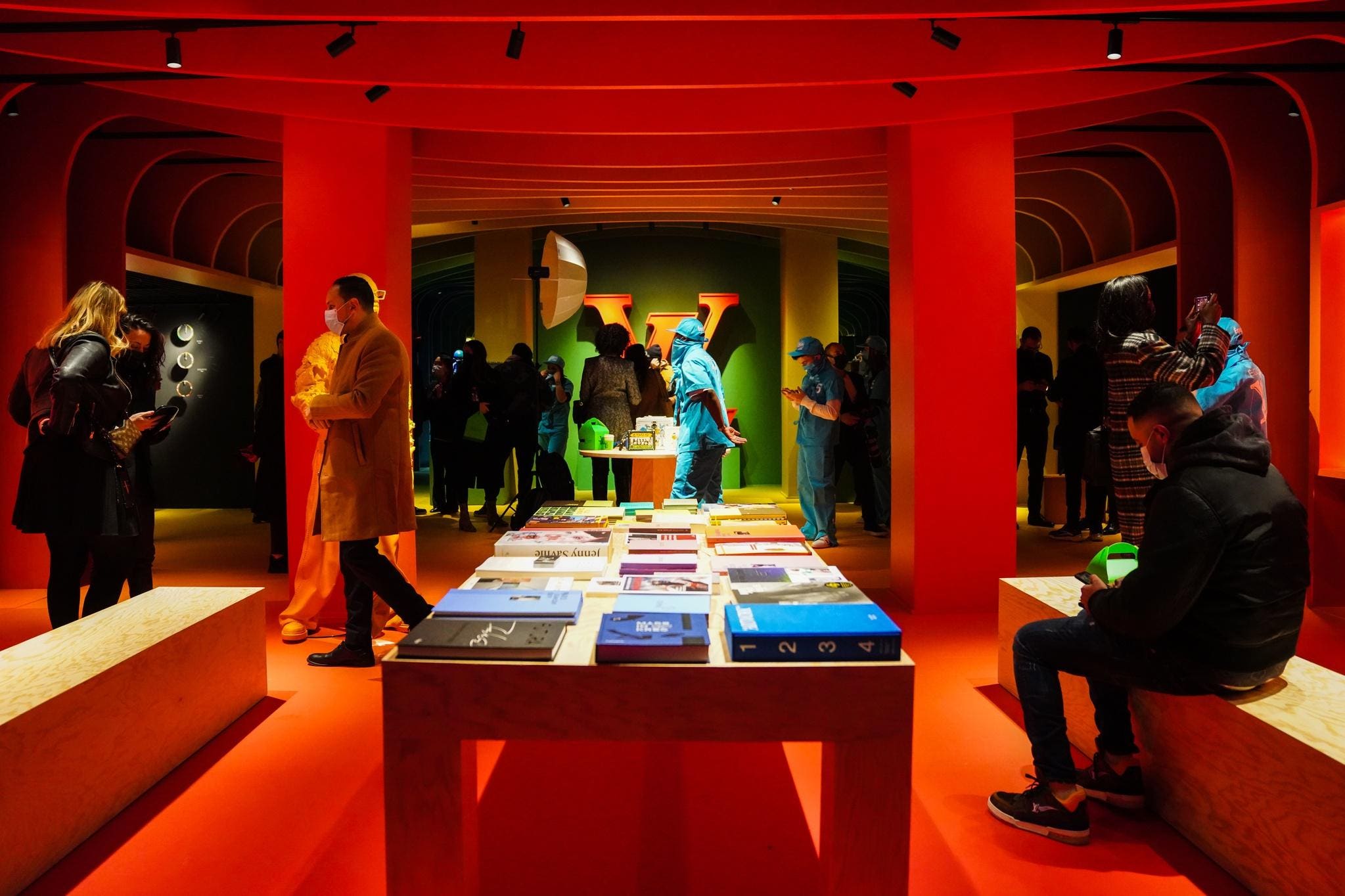
Couture Week just wrapped up in Paris and it doesn’t take much to notice that the ultimate world of luxury in fashion is shifting quietly in the year of 2024. Sure, top brand names and celebrity attendance still attracted heavy media attention, but it’s shows that invoked powerful experiences and emotions — like those by Maison Margiela (by John Galliano) and Schiaparelli — that will resonate with the ever more sophisticated audience and go down in history.
Carlota Rodben, two-time author, innovation specialist and podcast host, has formed her own view of the future of luxury in her new book, Beyond Luxury: The Promise of Emotion. Having began her career in the esteemed house of Chanel where she established an innovation team and worked on new concepts for the brand’s retail future, Rodben’s new book arrives timelyas a combination factors (think global economy slowdown, conscious consumerism, sustainability dominance and technological transformation) all contribute to the redefinition of luxury’s exclusivity.
“The ultimate luxury in fashion and beauty transcends the physical. It lies in creating value that resonates with our emotional and psychological landscapes. Luxury is a multi-sensory experience, a deep emotion that captivates and transcends the ordinary, inviting us into a dreamlike state of beauty.” When asked what rthe ultimate luxury is for her, Rodben doesn’t hesitate. In her new book, she uncovers a future in which luxury is intrinsically tied to purpose and experiences, illustrating the industry’s evolution from a product and service orientation toward an approach centered on human experiences and emotional engagement.
Carlota Rodben, two-time author, innovation specialist and podcast host, has formed her own view of … [+]
Last year, fashion veteran and influencer Bryanboy famously ranted on a simple Miu Miu coat costing $6,000 plus tax, and a Chanel handbag having increased over 100% in retail price over the past decade; and Phoebe Philo has caused internet-wide debate as her debut collection (and subsequent capsules) came with eye-watering price tags. Could it be that the reign of leading brands are finally being challenged, and they can no longer simply rely on the aspirational value and command top dollars from customers without providing individualized, human-centric products? But despite the popular opinion that movements like quiet luxury and Mob Wife Aesthetics are consumer-driven and goes beyond brand names, it was then concluded by Vogue that the trends really started on the runway of — you guessed it — big industry brand names.
Oyuna Tserendorj, founder and creative director of cashmere brand OYUNA, shares her view.
“Many people have very little understanding about what goes into creating a great brand. Especially a super brand,” Says Tserendorj. “There is a ton of hard work that goes into creating something so coherent and inspiring. There is craftsmanship, know-how, experience, top notch talent, strong vision, and yes, the best materials. So, in my opinion, one does not just pay for the ‘brand name’ – because just a ‘brand name’ is hard and persistent work. But IF a brand, regardless of if it is a super brand or any other brand, uses non-premium quality fabrics but charges the prices for those that are premium, then it is completely unethical.”
Behind the scene at OYUNA
Rodben agrees, and says Phoebe Philo’s approach to balancing aspiration with high pricing in her fashion line is an insightful case study. “Her ability to command a $6,000 price tag on a bag stems from a deep understanding of her target market and the value of storytelling in luxury branding.”
“What sets Phoebe apart is her status as a ‘walking story.’” Rodben continues. “Her tenure and impact at Celine made her an aspirational figure, creating a brand identity beyond the products themselves. Moreover, Philo’s approach to producing limited quantities, less than 30 units per SKU and significantly fewer than industry standards, speaks to her commitment to exclusivity and sustainability.”
Super brands face mounting criticism due to their limited budget allocation in the areas of exclusivity and sustainability. Many independent brands, despite having limited resources compared to bigger industry names and facing ever-rising costs of production, are more committed to sustainable business practices that will lead to a more conscious future for luxury. But it doesn’t come without difficulties.
“I feel more challenged to find ways to maintain my creativity and my business while striving to enhance sustainability by minimizing resource usage and production, trying to find ways to be more sustainable, use less resources and produce less.” says Bora Aksu, founder and designer of his eponymous brand. “It is crucial that we raise awareness and encourage a shift in customer behavior. Considering the ever changing times; it is essential that we all adapt.”
Designs from Bora Aksu’s SS24 collection
For Aksu, luxury fashion evolves around individuality, uniqueness and a meaningful message. “Now more than ever, prioritizing sustainability and protecting natural sources is even more essential.” The designer says, pointing out that a couple seasons ago, the brand started a journey searching for rejected stock fabrics instead of sourcing new materials. “Incroporating these pieces into the collection holds significant meaning. Fashion of course can be more sustainable, however it requires a collective approach. We need to all understand that sustainability is one of the main paths that we all need to take to help nature restore itself.”
Nina Hopkins founded the ethical faux fur brand Jakke in 2015, believing that women should be able to buy confidently into ethical fashion. The brand’s sustainability-driven, affordably-priced vegan fur coats have fast captured an audience that’s not only fashion-forward, but social-environmentally conscious.
When asked about what her definition of the ultimate luxury, Hopkins says: “[It] is brand that encapsulates an unparalleled commitment to environmental and social responsibility, seamlessly woven into every aspect of a brand’s identity. Where products reflect meticulous craftsmanship using responsibly sourced, plant based materials, ensuring minimal ecological impact.”
“I personally believe luxury brands could champion sustainability more.” As an independent brand, Hopkins notes on luxury brands’ impact as leading forces in the industry, and says they do already embrace a more circular economy by designing durable products, with some offering a repair service showing their commitment to longevity and reduced environmental impact.
Jakke’s sustainability driven, affordably-priced vegan faux fur coats have gained the brand a cult … [+]
“But transparency and traceability need to shine as paramount virtues, offering consumers a profound understanding of the product’s journey from inception to creation,” Hopkins adds. “They need to educate their customers more and as ultimately; they are the ones with the financial resources to enact transformative sustainability measures and set industry benchmarks for ethical practices. Ultimately, luxury brands can lead by example, using their influence to reshape industry standards.”
So is the future of luxury, then, rooted in the choices of brands and consumers?
“We can’t discuss luxury anymore as a starting point. Luxury needs to be an end result of something bigger. We need to consider If a luxury has been created safeguarding human wellbeing, inspiration, craftsmanship and planets’ resources. Then it is a true luxury, for years to cherish.” Tserendorj says.
Aksu dives deep on the power of consumers. “The end customer has the most power and influencer, and if they make sustainable choices then the mass production entities will follow. Fashion has a powerful visual language and ability to evoke emotions. Fashion should bring hope and encouragement into the times that we are living in and guiding us towards a better world. Ultimately, achieving a better world can only happen when we start to discover our better selves. The concept of not merely consuming but also reusing the resources around us feels key.” Aksu notes further his strong belief of the buying power in Asia, particularly China (the designer has opened a store in Beijing’s high-end YinTai Center). “There is more awareness and selectiveness when it comes to shopping . Having a strong and clear brand identity is more important then ever. The loyal customers still would like to invest in the signature pieces.”
Carlota adds: “In terms of changing consumer behaviors in Asia post-COVID, the decline in spending has prompted a shift in luxury consumption, with consumers seeking more localized and authentic experiences. This redefines the luxury business model, focusing on creating value through experiences and sustainable practices that resonate with today’s discerning consumers.”
“As I envision it, the future of luxury is marked by a transformative shift in values and expressions. It’s a move towards dematerialized luxury, where the focus shifts from products to memorable experiences. Hyper-personalized luxury is critical, utilizing technology and human touch to create deeply resonant, individualized experiences.” Community, connection and belonging is also important, according to Rodben, as she comments on the trend towards human-centric luxury. “There’s a shift towards net-positive luxury, emphasizing sustainability and circular business models as central tenets.”
